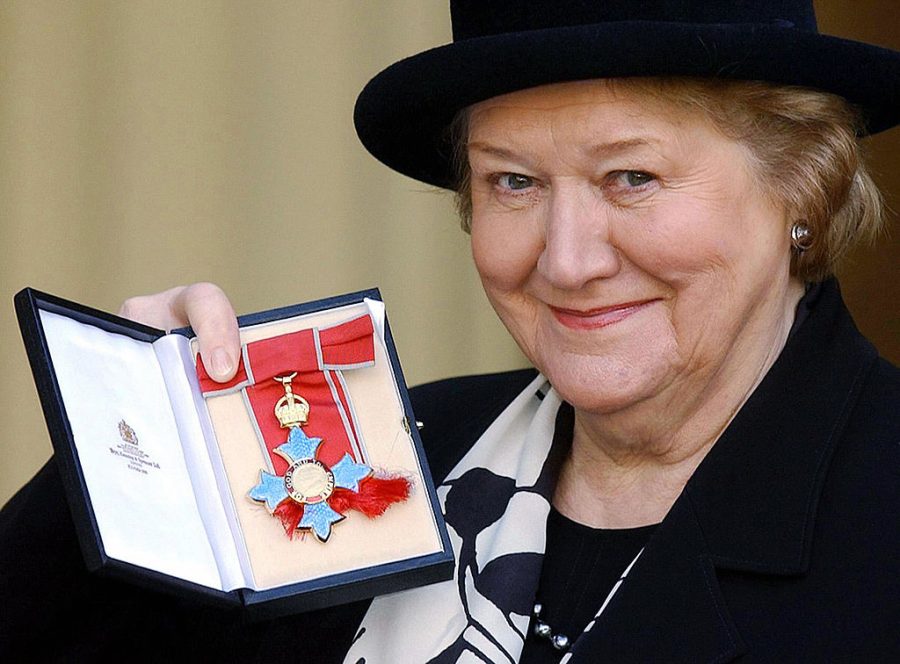It is the fate of any actor or actress who is inextricably associated with one major role that, when they die, the obituaries will lead with their best-known part rather than any of their other accomplishments. So it has proved with the great classical actress Patricia Routledge, who has died at the grand old age of 96.
There are so many things to celebrate about Routledge’s life, whether it’s her collaborations with Alan Bennett and Victoria Wood, her distinguished stage career (which lasted right up until her eighties) or such thoroughly enjoyable slices of middlebrow televisual fluff as Hetty Wainthrop Investigates. But in truth, the cry ‘Keeping Up Appearances actress dies’ is likely to be the pervasive one. It is not hard to see why.
Routledge led a distinguished, eclectic career
As the social-climbing snob Hyacinth Bucket (pronounced, inimitably, ‘Bouquet’), Routledge did not so much savour her career-defining role in Roy Clarke’s Nineties sitcom as grab it, swallow it whole, and then come back for extra helpings. As the lady of the house in the Bouquet residence, she gave a terrifically defined piece of physical comedy that saw her excel as the dragon-like protagonist. She was forever striking terror into the hearts of those around her with invitations to inedible and pretentious candlelit suppers and seeking to conceal her lowly social origins from all around her while being caught out by her amiably slobbish relatives.
In truth, the scripts were rarely as sharp as Routledge’s performance, and by the fifth season in 1995, she made the sensible decision to leave the show behind and explore other work instead. Not, of course, that this work was wildly different. She excelled on stage in The Rivals as Mrs Malaprop and, inevitably, as Lady Bracknell in The Importance of Being Earnest. A certain briskness off-stage, especially when dealing with ignorant or boring journalists who wanted to treat her as a real-life Hyacinth, led the lazy to regard Routledge as a larger-than-life caricature.
In fact, Routledge was a far more versatile and interesting figure, both on screen and in her personal life, than such a designation might suggest. She was a near-contemporary of Maggie Smith’s but was never a natural fit for Shakespearean roles such as Desdemona or Viola, instead being more predominantly comic in her casting. Never a classical beauty, she was being cast as Queen Victoria on stage when not even forty and skilfully parlayed her ability to play both broad comedy and poignant drama into a lengthy career that outlasted many of her superficially more glamorous but far less talented fellow actresses.
While Hyacinth Bucket will remain her best-loved role, her finest hour may well have come in her two collaborations with Alan Bennett. The first was the Talking Heads monologues ‘A Woman of No Importance’, in which she plays an office busybody who comes to understand her irrelevance to the lives of her colleagues, and ‘A Lady of Letters’, in which she was the serial letter-writer Irene Ruddock, who finds eventual peace when she is imprisoned after one poison-pen letter too many. Both Bennett and Routledge were Northerners, and the bleak, almost surreal humour of his writing found full and half-poignant, half-hilarious expression through Routledge, who seized the opportunity to bring Bennett’s characters to the screen.
She led a distinguished, eclectic career. Leonard Bernstein wrote 1600 Pennysylvania Avenue for her on Broadway and gave her the chance to play all of the American first ladies in the process. She was the author Barbara Pym in the one-off comedy drama Miss Pym’s Day Out and appeared in the film To Sir, With Love opposite Sidney Poitier, although she swiftly abandoned cinema for stage and television. When not acting, she lived a happy and contented life in Chichester, where she worshipped at the cathedral and was a keen supporter of that city’s excellent Festival Theatre.
Dame Patricia Routledge was the epitome of what a great British thespian should be – one who subsumed her own character and personality to the roles she played – but she will forever be remembered, not without justice, as the inimitable, ungovernable Hyacinth Bucket.







Comments